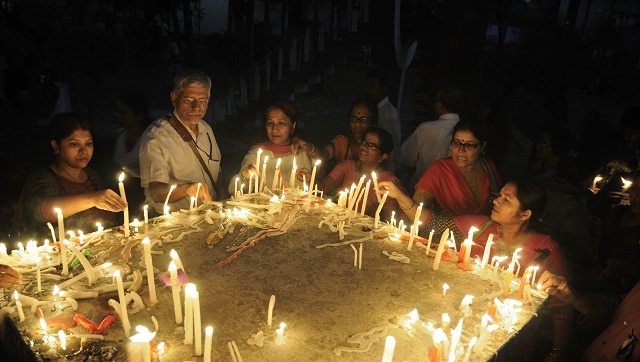Tamil Nadu Assembly elections | Congress reaches pact with DMK, settles for 25 seats
It will get one Rajya Sabha seat and contest in the Kanniyakumari Lok Sabha bye-election.
The DMK and the Congress reached a seat-sharing agreement on Saturday night, ending days of strong posturing by the national party and its veiled threat of walking out of the alliance.
The Congress will contest in 25 Assembly seats and in the byelection to the Kanniyakumari Lok Sabha seat that fell vacant after the death of H. Vasanthakumar. It will also get one Rajya Sabha seat. In a late night development, party leaders Dinesh Gundu Rao, K.S. Alagiri and K.R. Ramasamy met DMK president M.K. Stalin at his residence.
“We have reached an agreement. We will be signing the agreement tomorrow around 10 a.m.,” Mr. Rao told The Hindu after the meeting.
The Congress was left with not many options after the DMK refused to concede its demand for 30 seats. Many in the Congress had been talking of walking out of the alliance if the demand was not met. Some leaders also floated the option of tying up with actor-politician Kamal Haasan’s Makkal Needhi Maiam as a last resort.
Pushed to the wall owing to the lack of strong alternatives, the Congress settled for 25 seats. The development came nearly three hours after Mr. Alagiri told reporters on the sidelines of a public meeting that a seat-sharing arrangement would be announced soon. Several leaders told The Hindu on Friday evening that the possibility of signing a deal was likely only on Monday since the DMK’s mega rally in Tiruchi was scheduled for Sunday.
A senior Congress leader attributed the climbdown to a lack of better options for the party. “What other options do we have? The other options are not great…,” the leader said.
In the past week, several Congress leaders had been insisting on “dignity for the party in the alliance and the number of seats”. On Friday, a senior leader told The Hindu that back-channel talks were taking place between the two parties.
A source in New Delhi said the central leadership was miffed at the State unit for fumbling on the seat-sharing exercise though it was given a free hand. The central leadership felt that winning a higher number of the allotted seats was more important than contesting in more seats.

